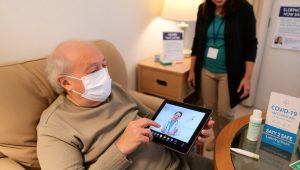
The COVID-19 pandemic has caused a global health crisis, with millions of lives affected in various ways. Among the most vulnerable groups, the elderly have been disproportionately impacted. Older adults face higher risks of severe illness, hospitalization, and death due to COVID-19, which is why ensuring their access to health support has become a top priority. COVID health support programs specifically tailored for the elderly have proven to be a lifeline in helping them navigate these challenging times.
One of the primary reasons the elderly are at greater risk from COVID-19 is that many older adults suffer from underlying health conditions such as heart disease, diabetes, and respiratory illnesses. These conditions make them more susceptible to complications from the virus. Additionally, the aging immune system may not respond as effectively to infections, further raising the risk. As such, elderly individuals need immediate access to both preventive and ongoing care, which COVID health support services aim to provide.
Healthcare support for the elderly during the pandemic includes a range of services, from medical check-ups to vaccination clinics. Regular health check-ups and telemedicine consultations have enabled older adults to receive ongoing care without the need to leave their homes. This reduces the risk of exposure to the virus while ensuring they stay on top of their health. Telehealth services, in particular, have seen a rapid rise in popularity, allowing seniors to consult with doctors, manage medications, and receive mental health counseling, all from the safety of their homes.
Another critical aspect of COVID health support for the elderly is the vaccination campaign. Older adults have been prioritized for vaccination in many countries due to their heightened vulnerability. Mass vaccination clinics specifically designed for seniors, along with mobile vaccination units for those who are homebound, have ensured that older adults receive the protection they need. Public health initiatives have also focused on raising awareness among the elderly population, dispelling myths about the vaccine, and providing clear, accessible information about its safety and efficacy.
Social support is equally important in the fight against COVID-19. Many elderly individuals face isolation, particularly during lockdowns and social distancing measures. Loneliness can exacerbate mental health issues and lead to a decline in physical health. Therefore, support networks for the elderly, including family members, caregivers, and community organizations, have played an essential role in providing emotional and practical support. Many local organizations have offered services such as meal delivery, shopping assistance, and regular check-ins to ensure that seniors are not left alone during this time.
In addition to health and social support, seniors have also benefited from mental health services that address the psychological impact of the pandemic. The fear of contracting COVID-19, combined with the isolation and uncertainty brought on by lockdowns, has caused significant anxiety among older adults. Many health support services have incorporated mental health resources, offering counseling, support groups, and mental wellness programs to help seniors cope with stress and anxiety.
As the world continues to fight the COVID-19 pandemic, it is clear that the health and safety of the elderly must remain a priority. Health support services have played a critical role in protecting this vulnerable group, from ensuring access to medical care and vaccinations to providing emotional and social support. Moving forward, continued efforts to expand and improve these services will be crucial in safeguarding the well-being of the elderly and minimizing the impact of future health crises.